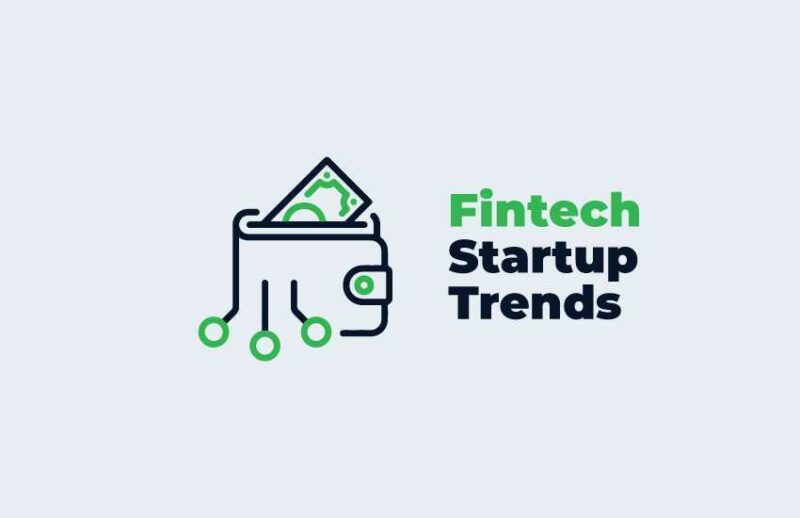Are You Launching a Fintech Startup? Stay Up to Date on the Latest Trends

- Brief overview of the importance of fintech in the startup world
- Discussion of the latest developments and innovations in the fintech industry
- Examples of new technologies and their impact on financial services
- Updates on major fintech companies and their recent developments
- Discussion of any new regulations or laws affecting the fintech industry
- The potential impact of these developments on the future of financial services
- Summary of the key takeaways from the latest fintech trends and breaking news
- Our financial services for startups
- FAQs
- Conclusion
Brief overview of the importance of fintech in the startup world
Fintech, or financial technology, is rapidly changing the way financial services are provided and consumed. In the startup world, fintech offers a range of new tools and solutions that can help entrepreneurs access funding, manage finances, and grow their businesses. These new technologies, including blockchain, AI, and digital payments, have the potential to make financial services more efficient, secure, and accessible than ever before. Additionally, fintech can also help startups to reduce costs and increase revenue by automating certain processes and enabling faster and more accurate decision-making. As the world becomes increasingly digital, fintech will continue to play an important role in the success of startups, making it essential for entrepreneurs to stay up to date on the latest developments and trends in the industry.
Discussion of the latest developments and innovations in the fintech industry
The fintech industry is constantly evolving, with new technologies and innovations emerging at a rapid pace. Some of the latest developments include:
Blockchain technology
Blockchain is a decentralized and secure digital ledger that can be used to store and transfer financial transactions. This technology has the potential to revolutionize the way financial services are provided, by reducing costs, increasing transparency, and improving security. Blockchain is being used in a variety of applications, from digital currencies to smart contracts and supply chain management.
Artificial intelligence (AI) and machine learning
AI and machine learning are being used to automate and optimize financial processes, such as risk management, fraud detection, and customer service. These technologies can help startups to make more accurate and timely decisions, and to better understand their customers’ needs and preferences.
Digital payments
Digital payment platforms are becoming increasingly popular, with consumers and businesses alike turning to mobile and online payment methods. Fintech companies are developing new payment technologies, such as QR codes, digital wallets, and contactless payments, to make it easier and more convenient for people to pay for goods and services.
Insurtech
Insurtech is a rapidly growing sub-sector of fintech solutions that is focused on the insurance industry. Insurtech companies are using technology to create new and innovative insurance products, such as pay-per-mile car insurance and on-demand coverage. They are also using data and analytics to make underwriting and claims processing more efficient and to better understand customer needs.
Overall, these developments and innovations in the fintech industry are providing new opportunities for startups to improve their financial operations, increase revenue, and better serve their customers.
Examples of new technologies and their impact on financial services
Blockchain and AI are two of the most promising technologies in the fintech industry, and they have the potential to significantly impact financial services for startups.
Blockchain
Blockchain technology can be used to create decentralized financial systems that are more secure, transparent, and efficient than traditional systems. For example, blockchain-based digital currencies such as Bitcoin allow for faster and cheaper cross-border transactions. Smart contracts, which are self-executing contracts with the terms of the agreement written directly into code, can also automate and streamline legal and financial processes. Startups can also use blockchain to create decentralized marketplaces, allowing them to connect with suppliers, customers, and investors in a more secure and transparent way.
Artificial Intelligence
AI can be used to automate and optimize financial processes, such as risk management, fraud detection, and customer service. For example, AI-based systems can be used to analyze large amounts of financial data, such as transactions and customer behavior, to identify patterns and make predictions. This can help startups to make better-informed decisions, and to better understand and serve their customers. Additionally, AI can be used to automate repetitive and time-consuming tasks, such as data entry and customer service, freeing up resources for more important tasks.
Overall, these new technologies have the potential to significantly improve the financial operations of startups by making them more efficient, secure, and customer-focused. By implementing blockchain and AI-based solutions, startups can gain a competitive advantage, reduce costs and increase revenue, and better serve their customers.
Updates on major fintech companies and their recent developments
There are many fintech companies that are making a significant impact in the industry, and it’s important for startups to stay updated on their recent developments. Some of the major fintech companies and their recent developments include:
Square
Square is a mobile payments company that provides point-of-sale software and hardware for businesses. Recently, Square has been focusing on expanding its services to small businesses and entrepreneurs by offering cash advances, loans, and other financial products. According to a report by Square, in 2020, small businesses in the US received over $1.2 billion in funding through Square Capital.
Stripe
Stripe is an online payment platform that enables businesses to accept payments over the internet. Stripe recently launched Stripe Capital, a lending service that provides funding to businesses that use Stripe’s payment platform. Additionally, Stripe has been investing in technology that can automate financial processes, such as fraud detection and compliance. According to a report, Stripe processed more than $200 billion in transactions in 2020.
Robinhood
Robinhood is a mobile app that allows users to trade stocks, options, and other securities for free. The company recently introduced commission-free trading for cryptocurrencies, making it the first major brokerage to offer to trade in digital currencies. According to a report, the number of Robinhood users trading crypto on the platform grew by over 240% in 2020.
Nubank
Nubank is a Brazilian fintech bank that offers a line of credit and debit card with no annual fee. They recently announced plans to expand their services to Mexico and Argentina, and they also launched a new product, a savings account that offers a higher interest rate than traditional banks. According to a report, Nubank has reached more than 20 million customers in Brazil and Mexico.
Chime
Chime is a U.S.-based fintech company that offers banking services through a mobile app. The company recently announced that it has raised $200 million in a new funding round, valuing the company at over $5 billion, and it is planning to expand its services to more states in the U.S. According to a report, Chime has more than 10 million active accounts.
Overall, these major fintech companies are constantly innovating and expanding their services to better serve their customers, and startups should stay aware of their developments to stay competitive. The trend shows that fintech companies are growing rapidly and they are able to attract more customers, process more transactions, and raise more funding.
Discussion of any new regulations or laws affecting the fintech industry
The fintech industry is constantly evolving, and new regulations and laws are being put in place to ensure the security and stability of the financial system. Some of the recent regulations and laws affecting the fintech industry include:
- The Financial Stability Oversight Council (FSOC) has issued guidance on how fintech firms should be regulated. The guidance aims to ensure that the fintech sector is safe and stable, while also promoting innovation.
- The Office of the Comptroller of the Currency (OCC) has issued a charter for special purpose national banks, which will allow fintech firms to apply for a federal bank charter. This charter will provide fintech companies with the same regulatory and supervisory framework as traditional banks.
- The European Union has adopted the Payment Services Directive 2 (PSD2), which aims to increase competition and innovation in the payments industry. The directive requires banks to provide third-party providers with access to their customer data, which will enable fintech companies to offer new and innovative services.
- The Consumer Financial Protection Bureau (CFPB) has issued guidance on how fintech firms should handle customer data to ensure that it is kept secure and private. The guidance also encourages fintech firms to adopt best practices for data security, such as encryption and regular security audits.
The SEC and FINRA have issued guidance on how fintech firms should handle regulatory compliance to ensure that they are operating in compliance with securities laws. The guidance also encourages fintech firms to adopt best practices for compliance, such as regularly reviewing compliance policies and procedures.
Overall, these new regulations and laws are aimed at ensuring that the fintech industry is operating in a safe and stable manner while also promoting innovation. They will help to ensure that fintech companies are providing secure and transparent services to their customers and that they are complying with laws and regulations.
The potential impact of these developments on the future of financial services
The recent developments and innovations in the fintech industry have the potential to significantly impact the future of financial services for startups. The use of blockchain technology and AI can help startups to make their financial operations more efficient, secure, and transparent. Digital payments and insurtech can also help to improve the customer experience and reduce costs. The adoption of new regulations and laws can ensure that fintech companies are operating in a safe and stable manner while also promoting innovation. These developments will contribute to the growth and stability of the fintech industry and will help startups to access better financial services.
Summary of the key takeaways from the latest fintech trends and breaking news
- Fintech is constantly evolving, with new technologies and innovations emerging at a rapid pace.
- Blockchain and AI are two of the most promising technologies in the fintech industry, and they have the potential to significantly impact financial services for startups.
- Major fintech companies are constantly innovating and expanding their services to better serve their customers, so startups should stay aware of their developments to stay competitive.
- New regulations and laws are being put in place to ensure the security and stability of the financial system and to promote innovation in the fintech industry.
- These developments in fintech have the potential to significantly improve the financial operations of startups by making them more efficient, secure, and customer-focused.
- Overall, fintech will continue to play a crucial role in the success of startups by providing them with better financial services and solutions.
Our financial services for startups
Our company specializes in providing financial services for startups, including business plan development, financial modeling, and pitch deck creation. We offer a reliable solution for entrepreneurs who want to navigate the complex world of finance and take advantage of the latest fintech trends and innovations. Our team of experts has a deep understanding of the fintech industry and can help startups to develop solid business plans, financial models, and pitch decks, secure funding, and grow their businesses. Contact us today to learn more about how we can help your startup succeed in the world of fintech.
FAQs
What is fintech, and why is it important for startups?
Fintech, short for financial technology, is crucial for startups as it offers innovative tools and solutions to access funding, manage finances, and grow businesses more efficiently. It can reduce costs, increase revenue, and provide secure and accessible financial services through technologies like blockchain, AI, and digital payments.
What are some recent developments in the fintech industry?
Recent developments in fintech include the rise of blockchain for secure and transparent financial transactions, the use of AI for automating financial processes and customer service, the growth of digital payments, and innovations in insurtech to create new insurance products and streamline operations.
How are major fintech companies impacting the industry, and why should startups stay updated on their developments?
Major fintech companies like Square, Stripe, Robinhood, Nubank, and Chime are constantly innovating and expanding their services, which can impact the competitive landscape. Startups should stay updated on these developments to adapt and remain competitive, as these companies are attracting more customers, processing more transactions, and raising substantial funding.
Conclusion
In conclusion, fintech is an essential part of the startup world and is rapidly changing the way financial services are provided and consumed. Entrepreneurs need to stay up to date on the latest trends and innovations in fintech to take advantage of new technologies and opportunities to improve their financial operations, increase revenue, and better serve their customers. From blockchain and AI to digital payments and insurtech, fintech is providing startups with new and powerful tools to access funding, manage finances, and grow their businesses. The future of fintech is bright, and entrepreneurs who stay ahead of the game will be in a strong position to succeed in the digital economy.
Contact us
Good to have you here! If you have any queries, please leave your message. Our team will reach out soon:)
.




